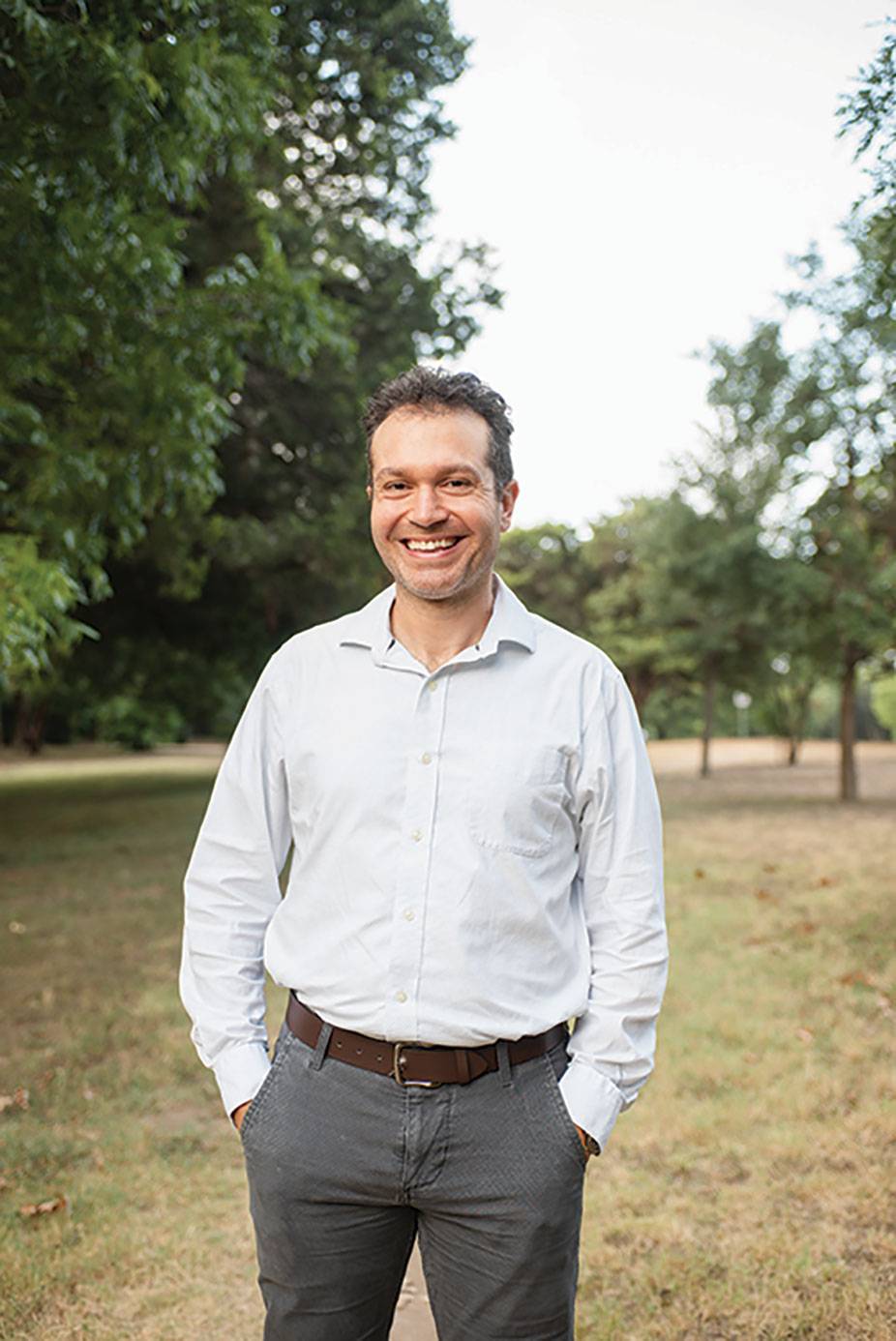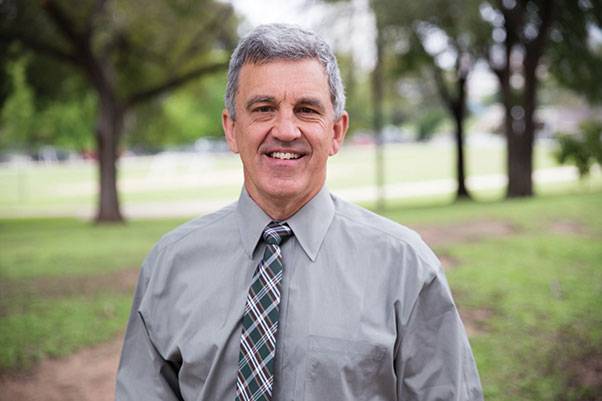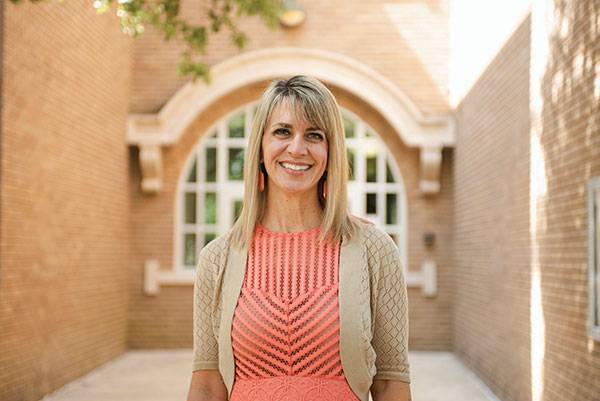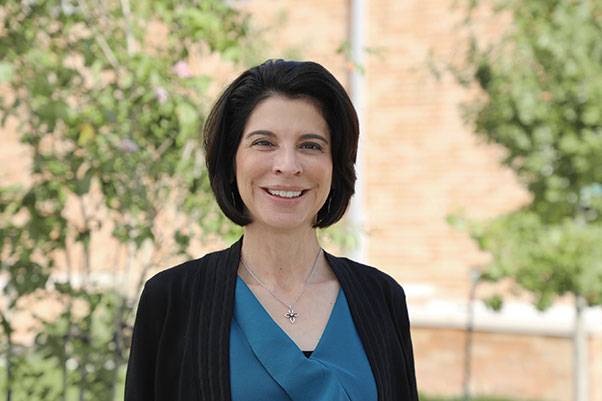School Improvement Cohort Climbs the Leadership Ladder
School Improvement Cohort Climbs the Leadership Ladder
When they began their doctoral program, the members of the School Improvement program’s fifteenth cohort were told not to make any major life changes during their doctorate work. Looking back on that advice, Dr. Cade Smith realizes he didn’t follow it very well.
“I changed jobs twice, and then I moved to another district,” he quips. However, Smith isn’t alone in making major life changes while in the program. In fact, this was a common occurrence for his classmates. “I can undoubtedly say they are a dynamic and inspiring group of leaders. Many advanced in their careers while still in our program, becoming superintendents, associate superintendents, and district leaders across the state,” says Associate Professor Dr. Melissa Martinez of the group, dubbed Cohort 15. Although they are the largest cohort in the program’s history, bringing a wide array of experiences, personalities and opinions with them, they all supported one another through every change, and they all agree that they owe credit for each new job, promotion, and district change to their doctoral program. As Cohort 15 alumna Diana Barrera puts it, “We’ve had success because of our work with each other and with the university and the professors we have the awesome opportunity to work with.”
The School Improvement Ph.D. program began in 2001 and takes an interdisciplinary approach to preparing educators who are interested in developing their leadership skills in order to improve and strengthen education. What drew many of the members of Cohort 15 to the program was its face-to-face format that cultivates conversations around diverse thought. “Most of the learning really came from our class sessions where we were having conversations as a cohort,” says Dr. Shannon Luis, “but we all have such varied backgrounds and experiences that everybody had a unique perspective on the conversation, so that’s what really pushed the learning I feel like, was the face-to-face [format].” She admits that she tended to be a very black-and-white thinker in the past, but going through the program has helped her to see the gray areas in many school issues, which is essential to her role as assistant superintendent of Academics and School Improvement in Elgin ISD.

Like Luis, others in the cohort express that the program opened their minds in ways that led them to successes in their fields that they would not have otherwise found. “It’s invigorating to learn with other smart people and learn from other smart people and to have your own viewpoints challenged. I think that’s extremely beneficial,” says Dr. Pete Price, who serves as the director of Social-Emotional Learning in Austin ISD. For Jose Falcon, assistant principal at New Braunfels High School, the drive to San Marcos was something he looked forward to every week because it was an opportunity to talk with what he calls his professional learning network. The School Improvement course work gave him the opportunity to converse with and learn from other educators at various levels of leadership. The in-class discussions were integral to the learning experience, but Kenedy ISD Superintendent Diana Barrera notes that the reading materials her professors chose were also hugely beneficial to her work. “Literally everything that we’ve read and we’ve learned I’ve been able to apply, which is really cool because you normally don’t get that opportunity.” Sometimes, she says, courses may contain fascinating concepts that don’t seem applicable to a student’s day-to-day routine, but she never experienced that with course material in this program.
The passionate conversations the students had in class allowed them to form relationships with each other that have been professionally beneficial. For example, Dr. Chris Galloway, director of Secondary Learning and Advanced Academics in Floresville ISD, first learned about Social- Emotional Learning (SEL) practices from hearing about Price’s job duties in class. At the time, Galloway was an elementary principal and began implementing SEL practices at his school.
He credits these practices with the school’s decrease in disciplinary issues and improved reading and math scores in the months following implementation. When he moved to Floresville ISD, Galloway passed this learning experience on to his principals by bringing them to Austin ISD to meet Price and tour his campus.
When Diana Barrera began her first year as superintendent in Kenedy ISD, she leaned on her classmate Blaine Carpenter, founder of CommunityWise Planning, to assist her in restructuring the district’s strategic plan. With Carpenter’s expertise, they were able to create a plan that brought the entire community into the conversation about the district’s future. After consulting on the strategic planning process for a year, Carpenter shared his vision for the continued transformation of the district as the Kenedy ISD convocation speaker this past August. His friendship and knowledge have been a comfort to Barrera, who points out that “The higher that you go up on the leadership ladder, the more you realize it’s a lonely job up on the top.” Having peers to support her when the going gets tough makes a difference, she says.
While professional connections are certainly important to these educational leaders, they have also been there for each other in times of personal crisis. As Dr. Monica Ruiz-Mills, now the Deputy Superintendent in San Marcos. CISD, was preparing to defend her dissertation proposal, her house was tragically struck by lightning and burned down. “I ran out of the house and I saved the dissertation, my mom, the dog and the cat,” she remembers. Upon hearing about the incident, her classmates came together and bought her new copies of the books she had been using for her dissertation research, and she was able to defend her proposal 11 days later.


As she processed her loss, Ruiz-Mills was also comforted by the kindness of her professors, who had all reached out to her by the end of that day. Others in the cohort share the sentiment that the School Improvement faculty are truly special. “The program is structured very well. The leadership is exceptional, and the professors make that thing run. And it runs like a top,” Smith says. Dr. Jason Swisher has seen firsthand the lengths faculty will go to in order to help their students succeed. He says he has Assistant Professor Dr. Barry Aidman to thank for his position as an organizational change management specialist at the Teacher Retirement System. When he interviewed for the job, Swisher had just taken a Leadership & Organizational Change course with Aidman and remembers writing out 15 pages of takeaways from that course to study for the interview. On the morning of the interview, Swisher called Aidman, who stayed on the phone with him for an hour and coached him through potential interview questions and responses. “I don’t think I would have the job that I have now if I hadn’t enrolled in this program,” Swisher says.
Immersion in the research process was also a beneficial experience for this cohort. Galloway says he consistently consults research before making changes in his district, and Price echoes that the theoretical and conceptual frameworks he learned in the program have changed the way he approaches his job tasks. With dissertation topics ranging from improving refugee education to superintendent and principal preparation to creative leadership, this exceptional cohort is bringing a wide range of knowledge not only to those they work with, but to the larger body of School Improvement research.
After four years, two job changes, and one district move, Smith, now the superintendent in Brock ISD, graduated this past August. Earning his doctoral degree is an accomplishment that carries a strong generational meaning for him. While he always encourages professional learning to those in his district, the ultimate reason he pursued his doctorate was for his children. One of Smith’s first memories was watching his father, a former superintendent himself, receive his doctorate, and he wants his children to have that same memory. “I want to show them that if you’re going to go after a career, go be the best at it,” he says, and so he went to Texas State. •
